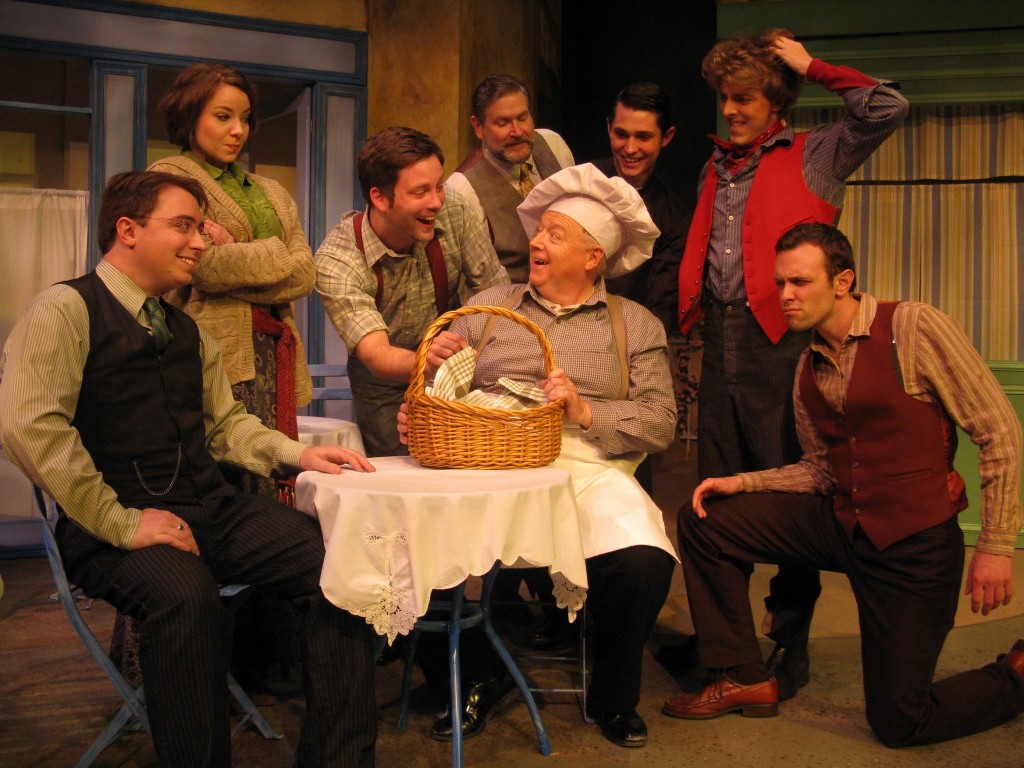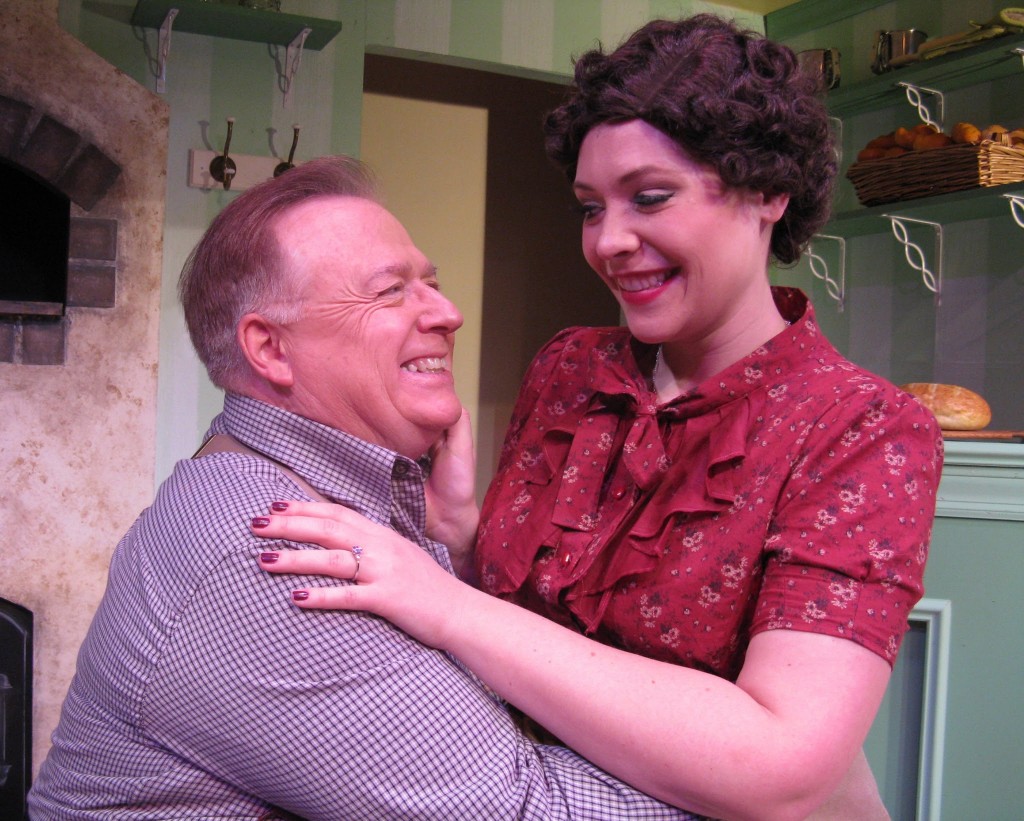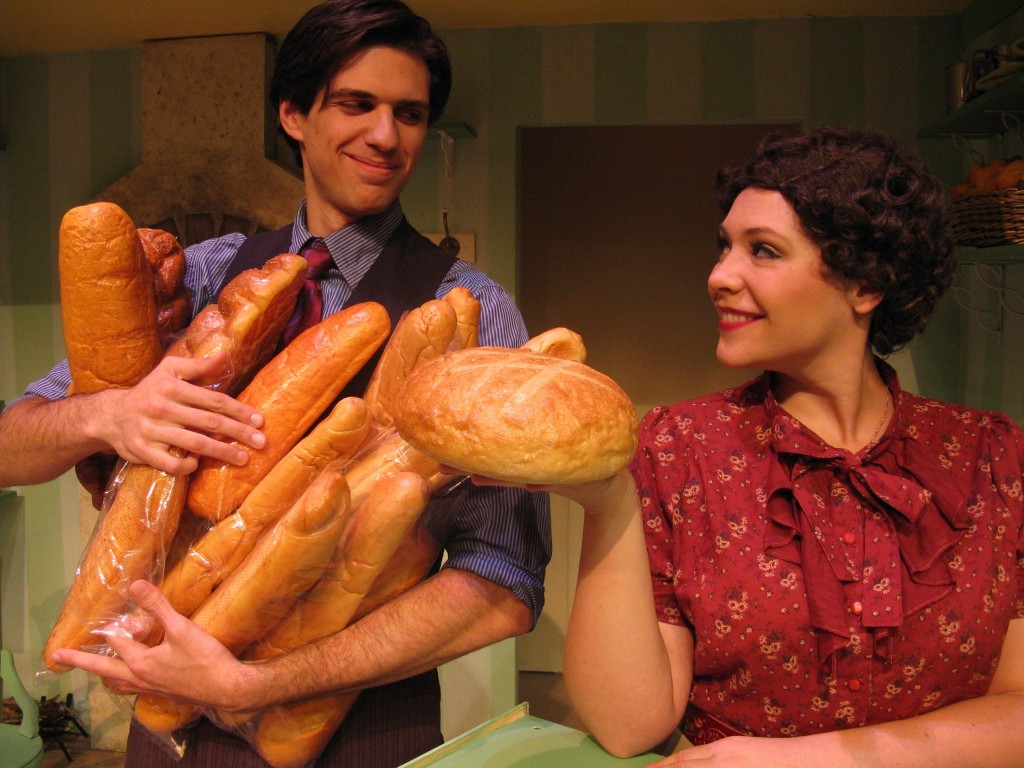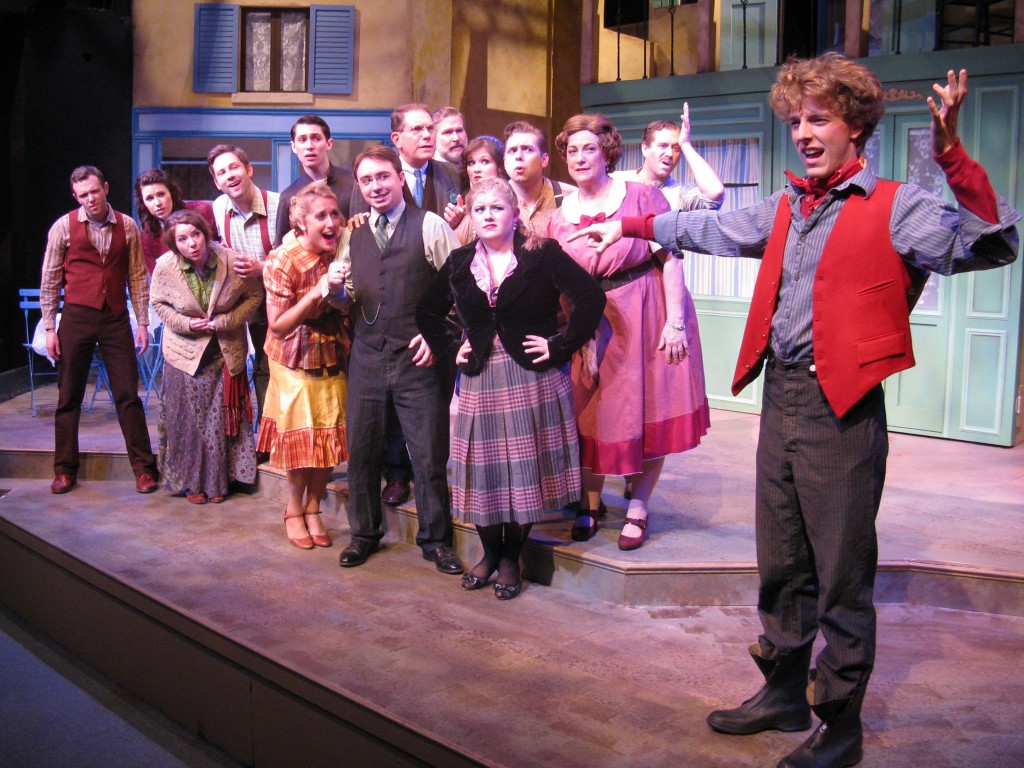STILL WAITING TO SEE
IF THIS DOUGH WILL EVER RISE
The Baker’s Wife never made it to Broadway. The musical folded in Washington. D.C. in 1976 before reaching New York City but has since gained something of a cult status in both the United States and England. Area audiences now have the opportunity to see for themselves whether or not the Stephen Schwartz show is an underappreciated gem of American musical theater. While the musical may lay claim to a certain modest whimsy and a few great songs, Circle Theatre’s uneven revival gives you the idea that even a top-of-the-line presentation would have problems stretching the thin story over the excessive 2 hours and 20 minutes evening. This can only be recommended to cultists and Stephen Schwartz idolaters.
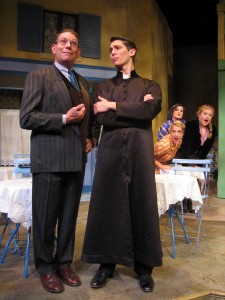 The Baker’s Wife is based on the famous 1938 French film La Femme Du Boulanger, one of those 1930s movies from France that both romanticized and patronized rural France and French peasants. The story is simple to a fault: the only baker in a Provencal village has died in a freak accident and the villagers are in a state of panic. They need their bread like a drug addict needs his fix. Finally, a new baker comes to town, a portly middle-aged man with a pretty young wife. The man makes superb bread and the village is once again content.
The Baker’s Wife is based on the famous 1938 French film La Femme Du Boulanger, one of those 1930s movies from France that both romanticized and patronized rural France and French peasants. The story is simple to a fault: the only baker in a Provencal village has died in a freak accident and the villagers are in a state of panic. They need their bread like a drug addict needs his fix. Finally, a new baker comes to town, a portly middle-aged man with a pretty young wife. The man makes superb bread and the village is once again content.
A crisis develops when a local young buck sweeps the baker’s pretty wife off her feet. Their hormones pulsating, the couple runs away to another town, leaving the baker distraught; and what’s worse for the village, he stops baking. To restore normalcy to the village’s culinary life, the locals decide to bring the wife back. She does return, ashamed that she betrayed her trusting husband. But he welcomes her with no hard feelings and everyone in town is happy. The baker’s marriage is restored and the villagers once again have their delicious croissants, brioches, and loaves of crusty bread.
The musical, like the motion picture, relies on a cluster of comic types: a bickering husband and wife, feuding neighbors, and the mayor who keeps a stable of three toothsome “nieces.” But it also relies on the nostalgic element in the story, which French audiences would more likely appreciate: it’s a flash back to a more innocent time when rural France represented the sturdy values of its country’s culture, much like The Music Man recreated a never-never land of small town American life at the turn of the last century.
The production does profit from a solid performance by Chuck Sisson as the baker. The corpulent Sisson is physically right for the role and nicely conveys the baker’s guileless personality. We feel the baker’s pain and confusion when his wife runs off and his joy and acceptance when she returns. Schwartz’s score is decent but there are only a couple of first-rate numbers – the baker’s plaintive “If I Have to Live Alone” is one.
Khaki Pixley sings well as Genevieve, the baker’s wife, and her rendition of the stirring “Meadowlark,” one of the best songs Schwartz ever composed, is a highlight of the production. But the character lacks depth and Genevieve’s erotic capitulation to the local young stud is too abrupt.
There are nice contributions from Anita Hoffman as a cynical wife, Kirk Swenk as the droll, worldly mayor, and Steve Greist, who does a fine comic turn as a young villager with a strong Gene Wilder streak in him. Hence the Circle outing is well served in key major roles – but there are 18 people in the show, and the supporting performers are an uneven lot. The talent pool for the production just isn’t deep enough to flesh out so many distinctive characters. Many of the male players are too young for their parts and mostly look and sound the same. As a result, the production, under Kevin Bellie’s direction, doesn’t give Joseph Stein’s book a fair shake.
The four-musician band under Gary Powell’s direction provides excellent accompaniment. Bob Knuth’s set functionally shifts between the outdoor village square and the interior of the baker’s two-story house. Amy Hilber designed the period costumes. Gary C. Echelmeyer designed the lighting and Matt Gajowniczek the sound.
So can The Baker’s Wife work? Perhaps as an escapist trinket, but it needs a completely first-rate cast, and the story (including the humorous squabbling among the characters) must be appealing and endearing. The Baker’s Wife must charm the audience to the core; otherwise, it simply doesn’t work.
photos by Bob Knuth
The Baker’s Wife
Circle Theatre
1010 Madison St in Oak Park
ends on January 22, 2012
for tickets, call 708-660-9540 or visit Circle Theatre
for more shows, visit Theatre in Chicago

